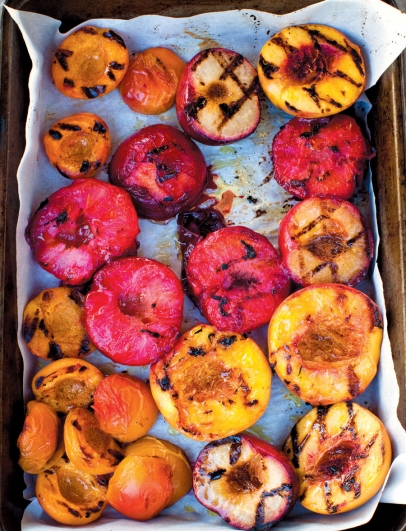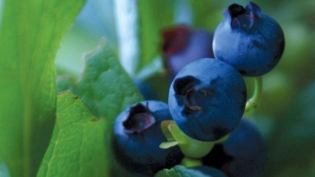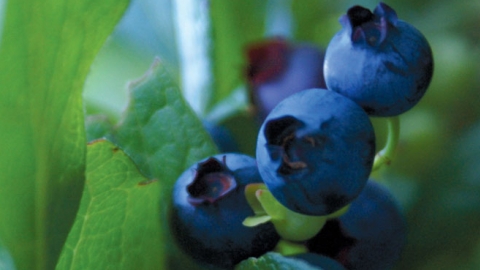School Days
A Cooking School Memoir
“Look what I got!” said Dr. R., as he triumphantly unwrapped a parcel from the poissonerie in the village of Aups, where for six years I held my culinary vacation program. “I wasn’t going to let that fish seller get away with selling me that big piece of dried up fish she kept pointing to. I knew you wouldn’t want that,” he beamed.
In fact, the “dried up” fish was exactly what I did want, and what I had written on his shopping list: morue. Morue is the name widely used in French markets for salt cod. Instead, he had successfully purchased a kilo or so of lovely fresh cod—a literal translation of la morue.
First, I congratulated him on the beautiful fish he had selected and said how fun that we would have a fish course that evening, as well as the scheduled Leg of Lamb with Herbes de Provence on a Bed of Potatoes. However, I explained, we would still need the “dried out” fish to make the Brandade de Morue for the next day’s appetizers, a spread of rehydrated salt cod combined with potatoes and loads of garlic and olive oil.
He sheepishly went back to the poissonerie and brought back a slab of salt cod. That afternoon, when my students—four couples who had been friends since medical school—gathered in the kitchen, Dr. R. gave a charming discourse to his wife and friends on cod, both fresh and dried, with a visual display, of course. We all had a great laugh, no one more than Dr. R., who, under my guidance, cooked the fish and made a beurre blanc to serve with it.
Granted, it was a meal of substantial proportions, but most of all it was an unforgettable learning experience for all of us, including me. I’ve seen these same couples several times over the years, and we never fail to laugh about the salt cod story and my assumptions about the understanding of morue.
During the years I ran Georgeanne Brennan’s Haute Provence Culinary Vacations in a restored convent I leased from a friend, I learned that running a cooking school was, like teaching high school history (which I did for 12 years), a daily adventure involving multiple personalities and requiring the ability to create an organized yet warm and comfortable learning experience while coping with assorted disasters and disruptions. Like the time the electricity was out for a day and half in early October and we cooked by candelabra and took cold showers. Or the time the sink clogged just before dinner and I had to get the plumber (a friend, fortunately) to come out for an emergency declog.
Almost everyone who attended my programs was an eager cook, but there were some exceptions. There were a few “challenges” who I still remember well.
One, whom I will call S., had come at the insistence of a friend who assured her that getting away to Provence would take her mind off losing her job. On the first day, on our excursion to a nearby winery for a wine tasting and education experience, S. announced that she did not like wine, that it tasted sour and no thank you, she did not want any. The other seven in the group, all women, were serious food and wine lovers, and after their initial surprise they set about encouraging her to try one of the rich, fruity white wines of the area, which she did. And then, again with gentle encouragement, she tried another.
In the kitchen that night she announced that she didn’t cook. By now, we were taking her in stride, and I offered her the simplest of tasks: preparing the vinaigrette and the salad. I presented an overview of the different olive oils, their qualities and where they were from, along with a selection of vinegars, and S. and I worked together. Around the dinner table, I asked everyone, as I always did, to introduce the dish they had prepared and to share how they had gone about it. My reluctant learner explained that she had made the dressing right in the bowl and had added a little more salt after tasting it. She then explained that you should make the dressing in the bowl and then add the salad greens—tossing them just before serving, just as she was doing, so they wouldn’t get soggy. By the end of the week, she not only was cooking roast pork and rustic berry tarts, but was shopping for Provençal dishes and tablecloths to take home.
Several years later, S. tracked me down at a book signing in San Francisco and thanked me for changing her life. “I cook all the time now, and have dinner parties, with special table settings, just like we did in Provence.” That is what teaching is about to me.
As the seasons changed, so did my menus and recipes, but always within the scope of Provençal specialties. I’d scout out the markets before the start of that week’s class to see what vegetables and fruits looked best and plan my cooking class menus around them. Each morning during the week-long sessions, I’d go over the day’s cooking activities, highlighting individual ingredients and what to look for at the market. Then I’d pass out individual shopping lists and suggest that everyone tour the entire market before buying in order to compare and evaluate the quality at the various stands. On our return, prior to our cooking sessions, each participant was taxed with sharing with the group how and why they chose their items. I found it was much more instructive and interesting for people to do their own shopping than for me to do it for them.
By the end of each week, everyone was showing off what they had created, enjoying one another’s food and company and delighting in the bounty of the varying seasons.
Summer is the easiest season of all for spontaneous, market-driven dishes. Surrounded by the immense variety of height-of-the-season fruits and vegetables, inspiration comes easily, like this simple roasted fruit recipe.






